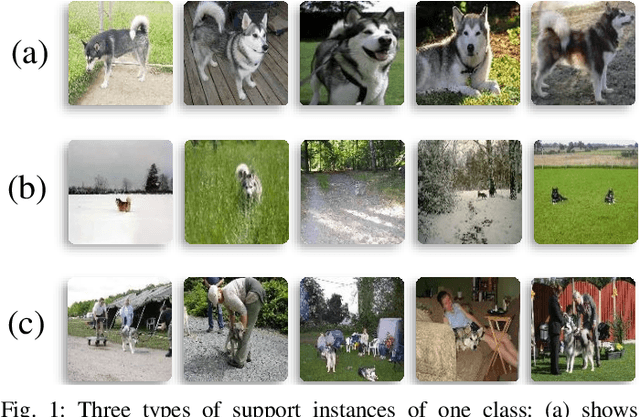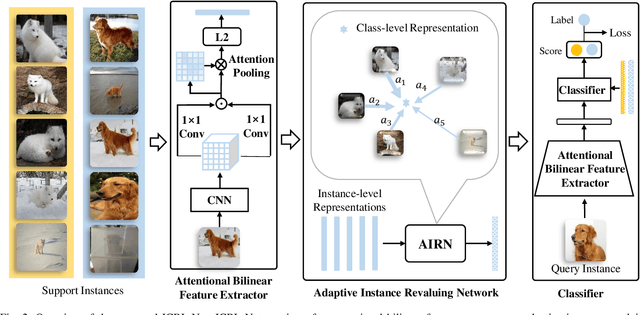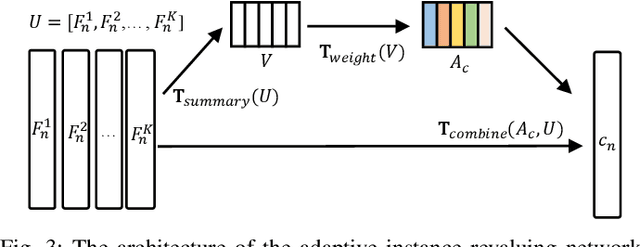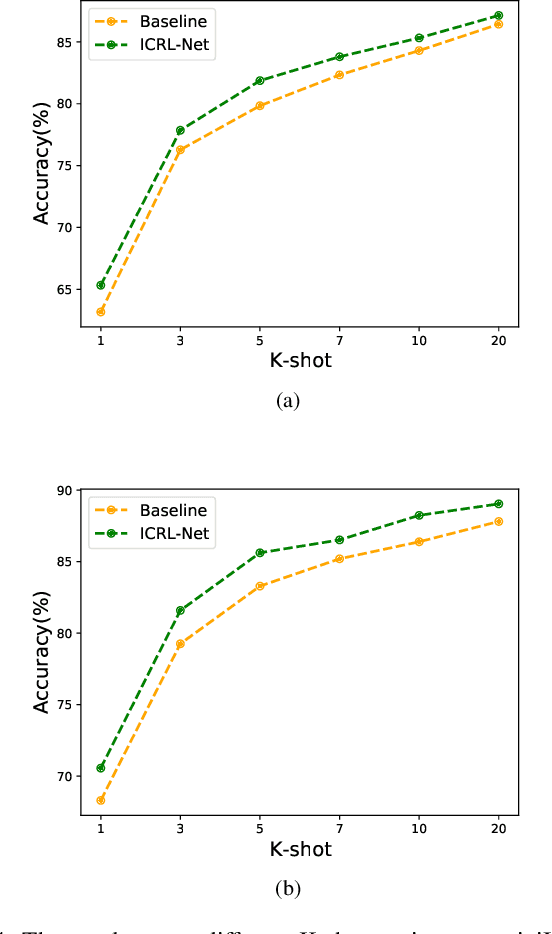Not All Instances Contribute Equally: Instance-adaptive Class Representation Learning for Few-Shot Visual Recognition
Paper and Code
Sep 07, 2022



Few-shot visual recognition refers to recognize novel visual concepts from a few labeled instances. Many few-shot visual recognition methods adopt the metric-based meta-learning paradigm by comparing the query representation with class representations to predict the category of query instance. However, current metric-based methods generally treat all instances equally and consequently often obtain biased class representation, considering not all instances are equally significant when summarizing the instance-level representations for the class-level representation. For example, some instances may contain unrepresentative information, such as too much background and information of unrelated concepts, which skew the results. To address the above issues, we propose a novel metric-based meta-learning framework termed instance-adaptive class representation learning network (ICRL-Net) for few-shot visual recognition. Specifically, we develop an adaptive instance revaluing network with the capability to address the biased representation issue when generating the class representation, by learning and assigning adaptive weights for different instances according to their relative significance in the support set of corresponding class. Additionally, we design an improved bilinear instance representation and incorporate two novel structural losses, i.e., intra-class instance clustering loss and inter-class representation distinguishing loss, to further regulate the instance revaluation process and refine the class representation. We conduct extensive experiments on four commonly adopted few-shot benchmarks: miniImageNet, tieredImageNet, CIFAR-FS, and FC100 datasets. The experimental results compared with the state-of-the-art approaches demonstrate the superiority of our ICRL-Net.
 Add to Chrome
Add to Chrome Add to Firefox
Add to Firefox Add to Edge
Add to Edge